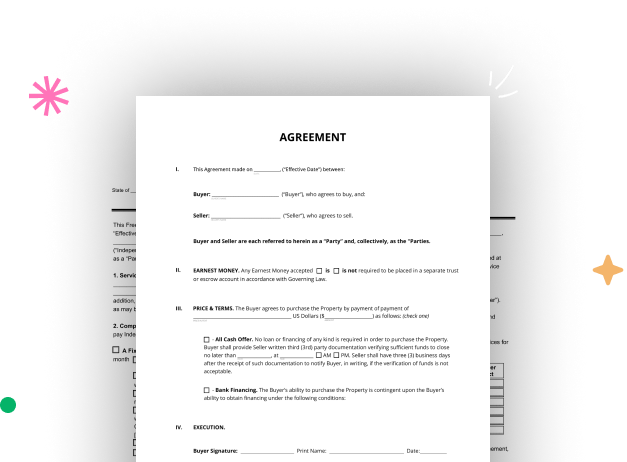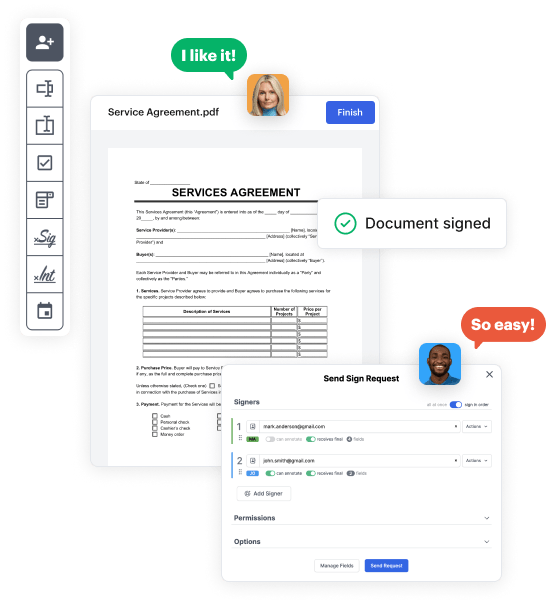

First, sign in to your DocHub account. If you don't have one, you can easily sign up for free.
Once you’re in, navigate to your dashboard. This is your main hub for all document-focused activities.
In your dashboard, select New Document in the upper left corner. Hit Create Blank Document to put together the Real Estate Law from the ground up.
Add numerous fields like text boxes, photos, signature fields, and other elements to your template and assign these fields to intended individuals as required.
Customize your template by adding walkthroughs or any other vital information using the text option.
Thoroughly review your created Real Estate Law for any errors or necessary adjustments. Take advantage of DocHub's editing features to polish your document.
After finalizing, save your file. You can opt to retain it within DocHub, export it to various storage services, or send it via a link or email.